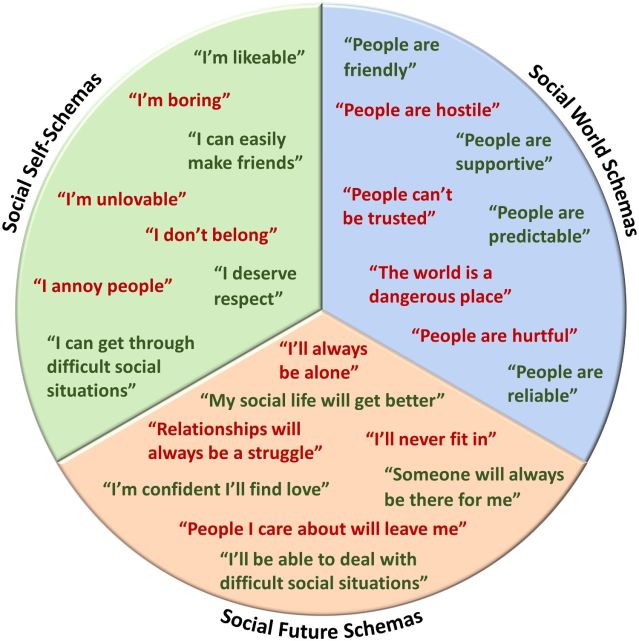In today’s hyper-connected world, adolescent girls face an unprecedented array of challenges, particularly from the relentless gaze of social media. Psychologists increasingly link the rise in girls’ anxiety, depression, and poor mental health outcomes to the pervasive social media cultural landscape. With many girls starting social platforms by age 12, they become highly vulnerable to the constant comparisons and unrealistic ideals presented online. This article explores the profound impact of these digital pressures and offers practical, empowering strategies for parents to help their daughters navigate this complex terrain with confidence and joy.
Understanding the Social Media Cultural Impact on Girls
The adolescent brain is inherently wired to seek safety and belonging. Social media, however, often distorts this fundamental need, creating a unique form of social stress. It exacerbates feelings of being left out, inferior, and inadequate, especially as girls constantly compare their lives to curated online personas. This digital environment fosters an intense pressure to perform and conform, leading to significant emotional strain. The pervasive influence of social media cultural norms dictates beauty standards, lifestyle choices, and even emotional responses, making it difficult for girls to cultivate their authentic selves.
The Unprecedented Weight of Digital Rejection
Today’s young people, particularly girls, encounter an unprecedented scale of rejection. From the number of “likes” on an Instagram post to college application outcomes and interactions on dating apps, every facet of their lives feels public and performative. This constant exposure to potential disapproval means adolescents navigate more social rejection in a single week than previous generations might have experienced in a lifetime. Their developing brains, not built for such intense scrutiny, are perpetually on high alert, creating a continuous cycle of stress and self-doubt.
Girls, on average, spend nearly five and a half hours a day on social media—significantly more than boys. During this time, they are bombarded with unrealistic images of female beauty and success. This daily exposure takes a heavy toll on their self-perception. Many girls confess to feeling like a collection of unacceptable body parts, trapped in a culture that demands they be “hot” to be valued. This relentless pressure activates the body’s stress machinery, leading to chronic feelings of inadequacy.
“I want my parents to know I hate my body.”
“I wish they knew how bad my anxiety is.”
These poignant statements from girls in workshops highlight the deep distress they experience. Harvard psychologist Carol Gilligan’s 1990s research spoke of girls entering “a journey into silence and disconnection” as they stifled their authentic selves to meet societal expectations. While we pride ourselves on broader expectations today, girls’ feelings of inadequacy and inauthenticity are more constant and punishing than ever, amplified by the digital sphere.
The Silent Struggles: What Girls Are Truly Experiencing
In workshops across the country, girls frequently describe their lives as one long, exhausting performance, subject to critique both online and offline. This constant scrutiny leads to profound “performance fatigue” and emotional exhaustion. One girl candidly shared, “You don’t know how hard it is not to compare yourselves to others online,” a sentiment echoed by many. They admit feeling pressured by influencers on platforms like TikTok and Instagram to change their appearance, use specific skin products, or emulate certain lifestyles. This constant external focus leaves many teen girls feeling increasingly disembodied and disconnected from their inner selves and genuine feelings. The social media cultural landscape makes it hard for them to simply be.
Empowering Your Daughter: Practical Strategies for Parents
Supporting girls through these intense digital pressures requires intentional effort and communication at home. Family life should serve as a sanctuary, a reprieve from the feeling of not measuring up. This shift begins by consciously choosing language that reduces stress and strengthens the parent-daughter bond, especially as they navigate the pervasive social media cultural landscape.
Foster Open Communication
- Create a safe space: Ensure your home is a place where she feels accepted, not judged.
- Active listening: Prioritize understanding her perspective over offering immediate solutions.
- Validate her feelings: Acknowledge her struggles are real and difficult, even if you don’t fully grasp them.
Model Healthy Digital Habits
Many girls express a desire to spend less time on social media but feel compelled to participate because it’s where their friends are. “I wish I knew how to stop a ‘scrolling session’,” one admitted. Another wrote, “I wish you weren’t always on your phone.” As adults, we must critically examine our own relationship with technology. Telling children to put their phones away while constantly checking our own messages sends a conflicting message. Model the behavior you wish to see, demonstrating balanced and intentional tech use.
Teach Critical Thinking About Online Content
Engage your daughter by asking her to notice how she feels while scrolling. If she admits to feeling angry, self-critical, or left out, explain that this is often by algorithmic design. Companies intentionally leverage these feelings for engagement and profit. Young people often resist being told what to do, but they are often keen to rebel against forces that exploit them. This approach can empower them to critically evaluate online content and recognize manipulative tactics.
Start with small, meaningful changes to tech use. Agree, for instance, to no phones at mealtimes, bedtime, and during daily car rides. These moments often provide fertile ground for genuine conversations about what’s truly on her mind.
Building Connection: The Power of Authentic Listening
Helping girls authentically voice themselves means listening in ways that assure them they are not being critiqued. When your daughter shares her feelings, carefully consider your response. Girls often report that parents react in ways that make them feel diminished:
- “I wish my mom knew my real struggles and talked to me about them without judgment or advice.”
- “Ask me how I’m feeling instead of assuming you know.”
- “You make me not want to share with you, so don’t be mad if I don’t tell you anything.”
They also expect parents to manage their own emotions maturely:
- “Getting mad is a really discouraging solution to my mistakes.”
- “I wish my mom didn’t put so many of her feelings on me.”
Before a potentially high-stakes conversation, offer a clear promise: “I will just listen, I won’t ask a single question.” Then, prepare yourself to hear things that might concern you. Unless it’s a danger to her or others, strive to manage your own distress as you listen to hers. Ground yourself in your love for her; this will soften your expression, lower your heart rate, and help her relax.
If she asks for your opinion, respond with, “I promise I’ll tell you, but first I want to know what you think.” Once she finishes sharing, reassure her, “I’m so glad you came to me with this.” These small, deliberate shifts in communication help her process emotions, express herself effectively, and cope with challenges. This process strengthens her emotional resilience, wiring her brain to handle life’s inevitable wobbles.
Cultivating Confidence: Affirming Your Daughter’s Worth
When girls hear their unspoken feelings articulated, they respond with profound relief. They are comforted to know that their struggles are shared. On hundreds of Post-it notes gathered from schools nationwide, girls have literally written the script for what they long to hear from you:
- “I wish I would hear, ‘Seeing you every day makes me happy.’”
- “I’m really proud of you and who you are becoming.”
- “I believe you.”
So, put down your phone and truly listen. What you discover may surprise you, and the positive changes that follow from this simple act of listening—and believing—may transform your daughter’s journey through the complex social media cultural landscape. Empower her to reclaim her confidence and joy.








